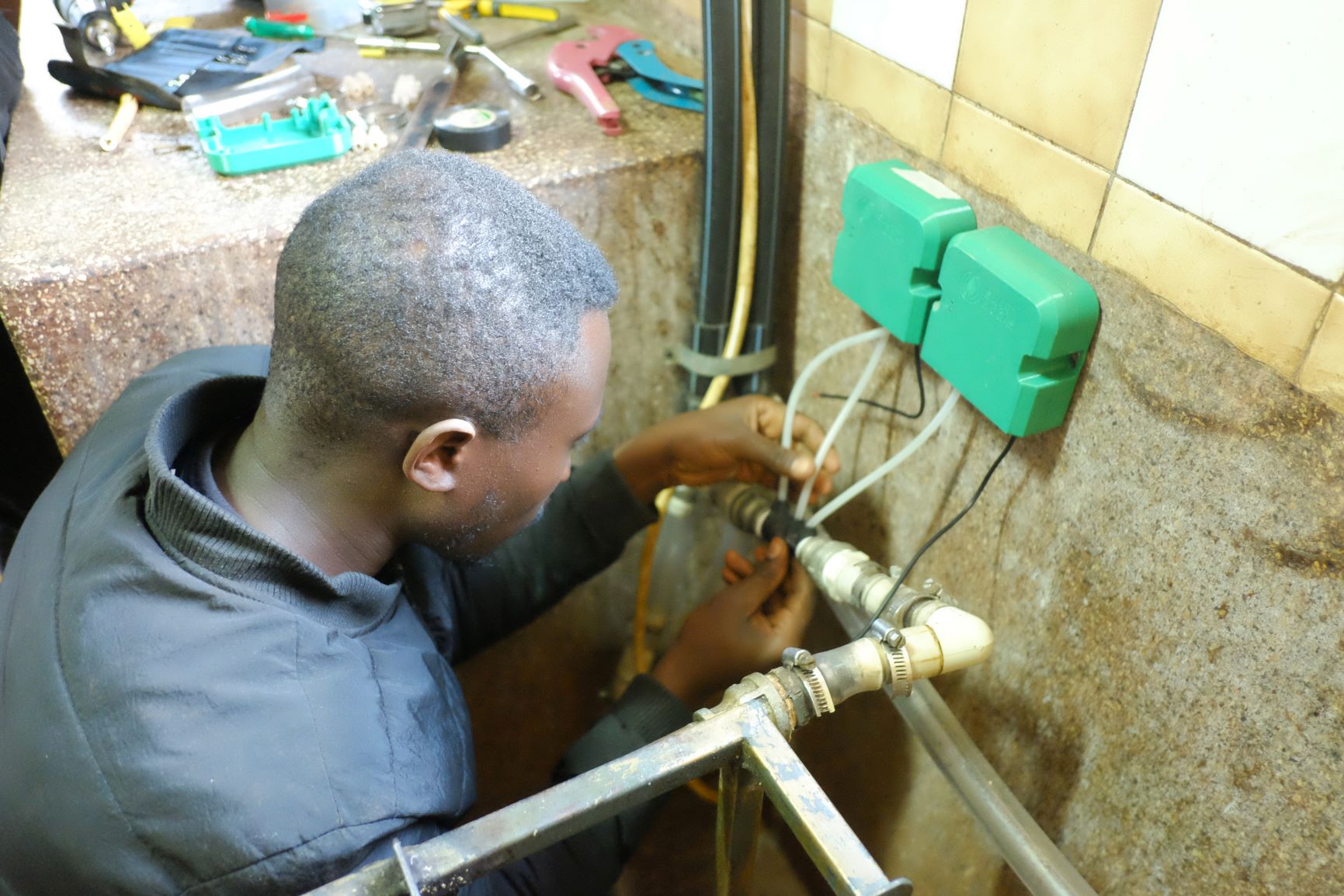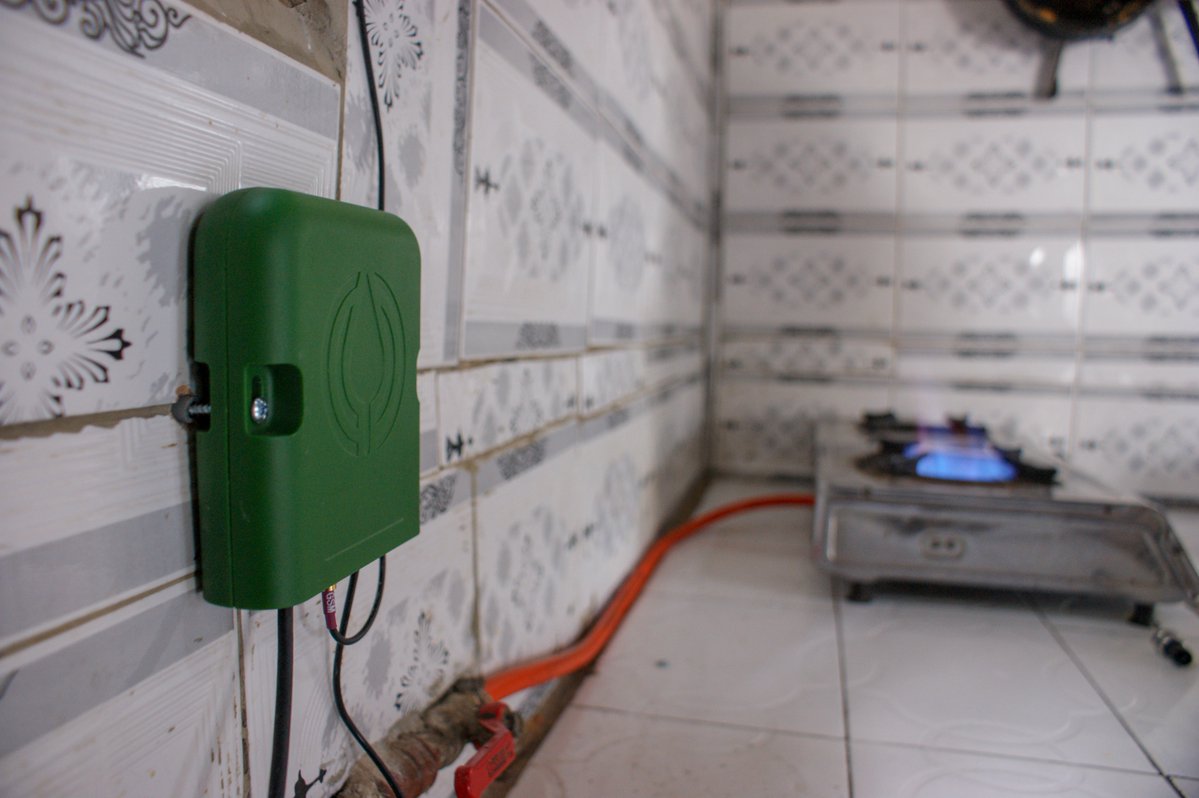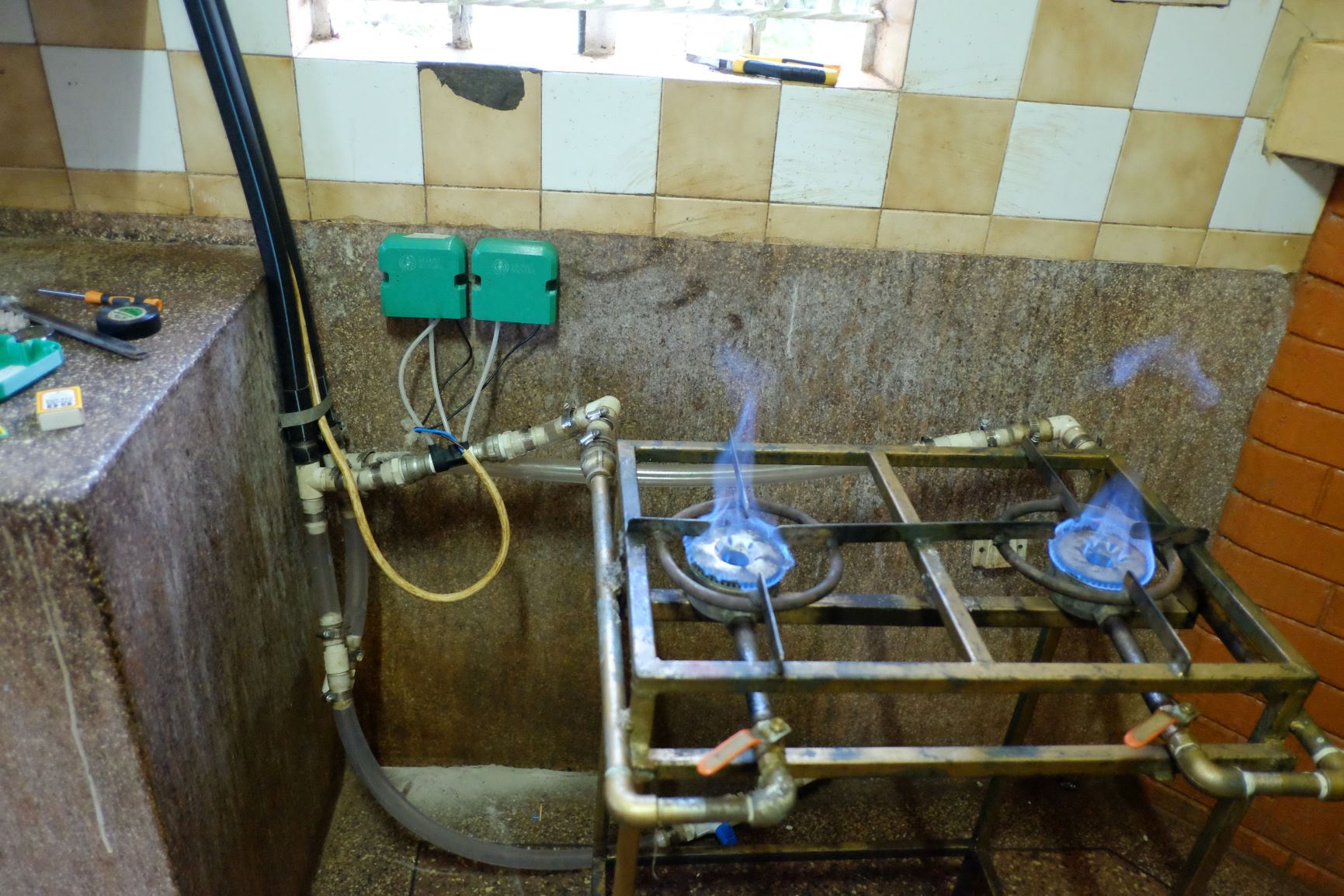Bringing Innovation to Biogas: An Interview with Inclusive Energy Ltd. Managing Director Vijay Bhopal
Inclusive Energy Ltd. is a UK-based start-up specializing in smart metering technology for biogas digesters and solar energy systems. A member of the Alliance’s Venture Catalyst portfolio, Inclusive Energy Ltd. recently closed their Seed B funding round, bringing their total funding to USD $1.25 million.
Inclusive Energy Ltd. Managing Director Vijay Bhopal spoke with Peter George, the Alliance’s Senior Director for Private Sector & Investment, about Inclusive Energy Ltd.’s growth prospects.
This interview is part of a series of conversations the Alliance is having with business leaders across the clean cooking sector. Colm Fay, the Alliance’s Director for Private Sector & Investment, contributed to this interview.
Peter George (George): What led you and your team to start Inclusive Energy Ltd.?
Vijay Bhopal (Bhopal): The company was started by four of us, all of whom had worked in energy access for quite a few years. Two founders had a background in engineering, focusing on biogas in East Africa, while two of us had commercial backgrounds and were more familiar with rural electrification in India and Southern Africa. That is one reason why our company has a dual focus across clean cooking and off-grid electricity.
When we started working together, we realized that we had come to the same conclusions around bottlenecks to scaling energy access – that high operational cost kills the business opportunity, especially for local businesses that don’t currently have the luxury of integrating communications systems into their products. We also saw a steady dominance creeping in, in which international companies take over the market.
Taking these two things together, we set out to build products that would: 1) reduce operational costs for energy service providers; 2) increase localization of the value chain; and 3) empower local companies to gain full control when putting together their own product packages to offer to local markets.
George: Tell me a bit about your technology and how it could impact the household biogas market in Africa, Asia, and Latin America.
Bhopal: Our product, Smart Biogas, is a remote monitoring system for all types of small-scale bio-digesters. It is amazing what data from digesters can tell us about how they’re being fed and used, and highlight faults, sometimes even before the customer has noticed. The operating expenses associated with biogas solutions are typically quite high. If properly harnessed, we believe the market for technologies that reduce these expenses can scale quite dramatically.
We also hope to diversify options for biogas companies by introducing pay-per-unit metering, and introducing a quicker and cheaper way of verifying and monetizing greenhouse gas offsets and other social or environmental externalities. We’ve seen what has happened in the off-grid solar sector, so why can’t biogas follow suit? It is a beautiful example of the circular economy in action, but the business models haven’t always scaled well to date.
George: How has the product development journey been for your team? What challenges have you faced and how have you overcome them?
Bhopal: Product development has been tough. There are so many aspects that require expertise across many engineering and design disciplines. However, we have had some very patient partners who have shown interest from day one, and we’re grateful to them and thankful to be getting the product into the market soon.
George: You have now raised a total of $1.25 million and have brought on new equity partners. What does this new capital injection allow you to do?
Bhopal: It certainly opens up new opportunities for us. The first thing we have done is to invest in manufacturing, with the intention of scaling up and being able to reduce our price point in what is a pretty low-cost market. Beyond this, we have brought in some new technical staff who will continue to improve the product, as the software side is absolutely crucial if we want to achieve our ambition of unlocking a digitally driven operational model in the biogas market.
George: What makes your product and approach unique relative to other pay-as-you-go (PAYG) technologies on the market, many of which focus on electrification?
Bhopal: Biogas is different because, unlike an electrical system, switching off a biogas plant via a valve does not stop the energy producing process. Anaerobic digestion continues for quite a while, which will lead to methane gas building up and eventually being released into the atmosphere. As sustainability professionals, this is exactly the opposite of what we want to achieve. We’re working with the Kenya Biogas Program and Biogas Solutions Uganda to think about what PAYG for biogas should look like, while ensuring no environmental damage is done.
In addition, working with a corrosive gas has its own challenges. We have had to create a measurement technique that works for biogas, but is accurate enough for people to trust a PAYG system if they want to charge per volume rather than per unit time. We’re using an “old but gold” technique, having designed our own venturi meter [a flow measurement instrument] for this purpose.
George: Who are your likely customers? Are you targeting specific markets at this stage?
Bhopal: We’re interested in working with all of the biogas companies out there that work at the household or farm-scale, or smaller, community-scale digesters. We are manufacturing in India where we have a small office, so we will be concentrating there, but also have good partners in East Africa.
George: Are there clean cooking applications for this technology beyond biogas systems?
Bhopal: There is certainly scope for using our tech in other parts of the clean cooking space, but we want to concentrate on biogas. We have built the system specifically for biogas because there are some specific needs for this technology, and some commercial innovation opportunities in the space. The reality is that biogas is too often a peri-urban phenomenon because of the operating expenses I previously mentioned, and we want to help companies reach deeper into rural areas to improve peoples’ lives.
George: When can we expect to see the Smart Biogas product on the market, and which country or countries are you targeting for the full commercial launch?
Bhopal: We expect to send products to our initial partners by September. A full commercial launch will follow, and we’re already accepting pre-orders. We are working to make our products available across the globe, but are setting up physical regional presences in South Asia and East Africa at the outset.



